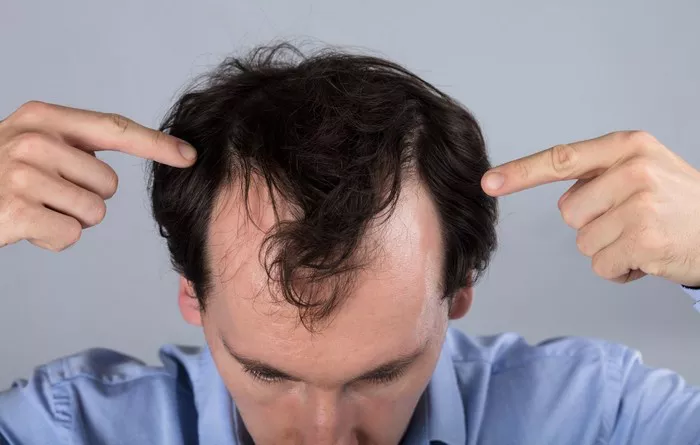Hair loss is a common concern that can be triggered by various factors, from genetics to stress and hormonal changes. While often considered a cosmetic issue, it’s crucial to recognize that changes in our hair can sometimes signify underlying health issues. In this exploration, we delve into the intriguing question: Can hair loss be a sign of a brain tumor? Understanding this connection requires a comprehensive look at the interplay between our body’s health and the intricate workings of the brain.
1. Normal Hair Growth Cycle: A Brief Overview
Before delving into the potential link between hair loss and brain tumors, it’s essential to grasp the basics of the hair growth cycle. The hair growth process involves phases of growth, transition, and rest. Normal shedding is part of this cycle, with individuals losing around 50 to 100 hairs daily. However, when hair loss becomes excessive or occurs in specific patterns, it may warrant further investigation into potential underlying health issues.
2. The Role of Hormones: A Balancing Act
Hormones play a pivotal role in regulating hair growth. Changes in hormone levels, such as those occurring during pregnancy, menopause, or conditions like polycystic ovary syndrome (PCOS), can contribute to hair loss. Additionally, imbalances in thyroid hormones can impact the hair growth cycle. Understanding these hormonal dynamics is essential when assessing the potential connection between hair loss and broader health concerns.
3. Brain Tumors: A Complex Health Challenge
Brain tumors are abnormal growths of cells in the brain, and their symptoms can vary widely based on their type, size, and location. While hair loss is not a typical or direct symptom of a brain tumor, certain indirect factors associated with tumor growth might contribute to changes in hair health. Intracranial pressure, hormonal imbalances, or the side effects of medications used to treat brain tumors are examples of how hair loss might be linked to these health issues.
4. Intracranial Pressure and Hair Loss: A Correlation
Increased intracranial pressure, often associated with the presence of a brain tumor, can potentially affect the body’s overall homeostasis. This pressure can impact blood flow to the scalp, affecting the nourishment hair follicles receive. Consequently, hair may become thinner or fall out. It’s important to note that elevated intracranial pressure is just one aspect of a complex web of factors, and a thorough medical evaluation is necessary to establish any correlation with hair loss.
5. Hormonal Imbalances and Hair Health: Unraveling the Links
Brain tumors can sometimes disrupt the delicate balance of hormones within the body. Hormonal imbalances, such as changes in cortisol or growth hormone levels, may contribute to hair thinning or shedding. However, these hormonal shifts are typically part of a broader spectrum of symptoms associated with brain tumors, making it crucial to consider the comprehensive clinical picture.
6. Medication Side Effects: A Consideration
Treatment for brain tumors often involves medications that may have side effects, including hair loss. Chemotherapy, for example, is known for causing hair thinning or complete loss. Radiation therapy, another common treatment for brain tumors, can also impact hair health. It’s essential for individuals undergoing such treatments to discuss potential side effects, including hair loss, with their healthcare providers.
7. When to Seek Medical Attention: Navigating the Signs
While hair loss alone is not a definitive indicator of a brain tumor, certain signs might warrant medical attention. Persistent and unexplained hair loss, especially when accompanied by other neurological symptoms like headaches, changes in vision, or cognitive issues, should prompt a comprehensive medical evaluation. Diagnostic tools such as imaging studies and laboratory tests can help identify the underlying causes and guide appropriate intervention.
See Also: Will Not Being Able To Sleep Cause Hair Loss: A Complete Guide
Conclusion: A Holistic Approach to Health
In unraveling the potential link between hair loss and brain tumors, it’s crucial to adopt a holistic approach to health. Hair loss can be influenced by a myriad of factors, and while brain tumors are among them, they are relatively rare. Understanding the complexities of the human body’s interconnections requires a careful balance of medical expertise and comprehensive evaluation. If you notice changes in your hair health coupled with other concerning symptoms, consulting with a healthcare professional is the first step towards unraveling the mysteries of your health. Remember, early detection and intervention are key to managing any underlying health issues effectively.


